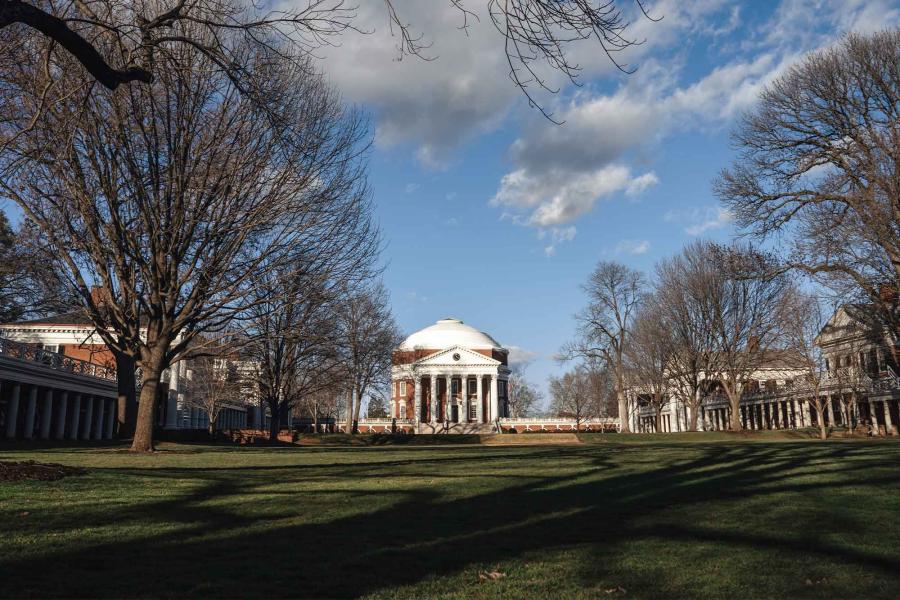Politics not only make for strange bedfellows, but also for bad neighbors, apparently.
People are more likely to sell their homes and move out of a neighborhood if new neighbors whose political views are opposite of theirs move in, according to research by University of Virginia economists.
The study, published last week in The Journal of Finance, uses information gleaned from North Carolina public records. It found residents were 4% more likely to sell their property and move within two years if their new neighbors have opposite political views, compared to residents whose new neighbors share their politics.
"Political identity and partisanship are salient features of today's society," the researchers wrote in the paper. "Using deeds records and voter rolls, we show that current residents are more likely to sell their homes when opposite-party neighbors move in nearby than when unaffiliated or same-party neighbors do.
"We document that an aversion to living near members of the opposite party is an important factor affecting households' home-sale decisions. Our causal test shows that households are willing to sell their homes and move - an enormously costly activity - when presented with opposite-party neighbors," they wrote.
Although the figures are believed to be representative of society at large, the data was limited to North Carolina. Researchers used public records to focus on residents who were politically affiliated. The desire to move away was seen in both Republicans and Democrats.
"That we're seeing any movement there at all is kind of surprising because moving is very expensive," said W. Ben McCartney, assistant professor of commerce at the McIntire School of Commerce and a faculty affiliate of UVA's White Ruffin Byron Center for Real Estate, who led the research. "You can imagine that, if you didn't like your new neighbor, you would just send more angry tweets, or something.
"The main finding in the paper is that people who get a new neighbor with opposite-party affiliation are 3.41 percentage points more likely to move. That's 4% more likely than someone whose new neighbor is of the same affiliation," he said. "We're estimating it's about 1% of all moves. That may not seem like a lot, but that is thousands of moves every year."
John Orellana-Li and Calvin Zhang, financial economists at the Federal Reserve Bank of Philadelphia, joined McCartney in the research.
McCartney said there are many reasons why people move into and out of communities and why some cities and neighborhoods are predominately Republican or Democrat.

W. Ben McCartney, assistant professor of commerce at the McIntire School of Commerce and a faculty affiliate of UVA's White Ruffin Byron Center for Real Estate, says the research shows that the country's political divide is real. (Photo by Tom Cogill)
"There are regions and cities and big chunks of space across the country that are going to be bright blue and bright red, and we know even before November rolls around that parts of Virginia are going to be very red and others very blue," McCartney said. "It's not just a rural/urban divide. It can break down into neighborhoods as well."
Some neighborhoods attract residents based on "amenity bundles," such as local public or private schools, parks or even restaurants that attract residents, McCartney explained. People may move in or out based on those amenities.
"So, there are two competing theories for why you might have politically segregated cities and built environments. On the one hand, it could be because people who value similar things end up living together. Or it could be because people don't like living with people flying Joe Biden flags or with 'Let's Go Brandon' stickers on their car. They think, 'I don't want to see that every day, so I'm going to move.' Both end up resulting in a politically segregated city, but for two very different reasons."
What the research tried to do was separate the reasons using real estate transaction information and public records regarding political affiliations in North Carolina, paring down the apparent reasons to simply politics.
"Disentangling the potential causes in the data is really hard, so we fixed the amenity bundle so the only thing that's different between the residents we studied was who is getting the opposite-party neighbor and who is not," McCartney said. "When we see the current residents getting the opposite-party neighbors are more likely to move, that's first-order evidence that there's something about the new neighbor that's causing them to move."
McCartney said the study shows the nation's political divide is real.
"This is, therefore, strong evidence that political polarization isn't just a Twitter phenomenon, but also affects major life decisions," he said.









